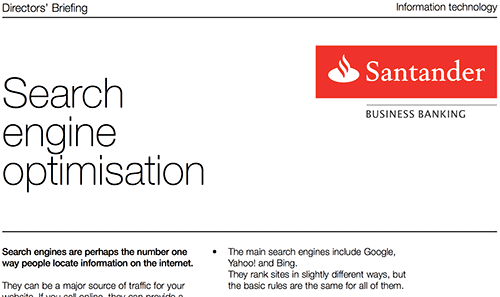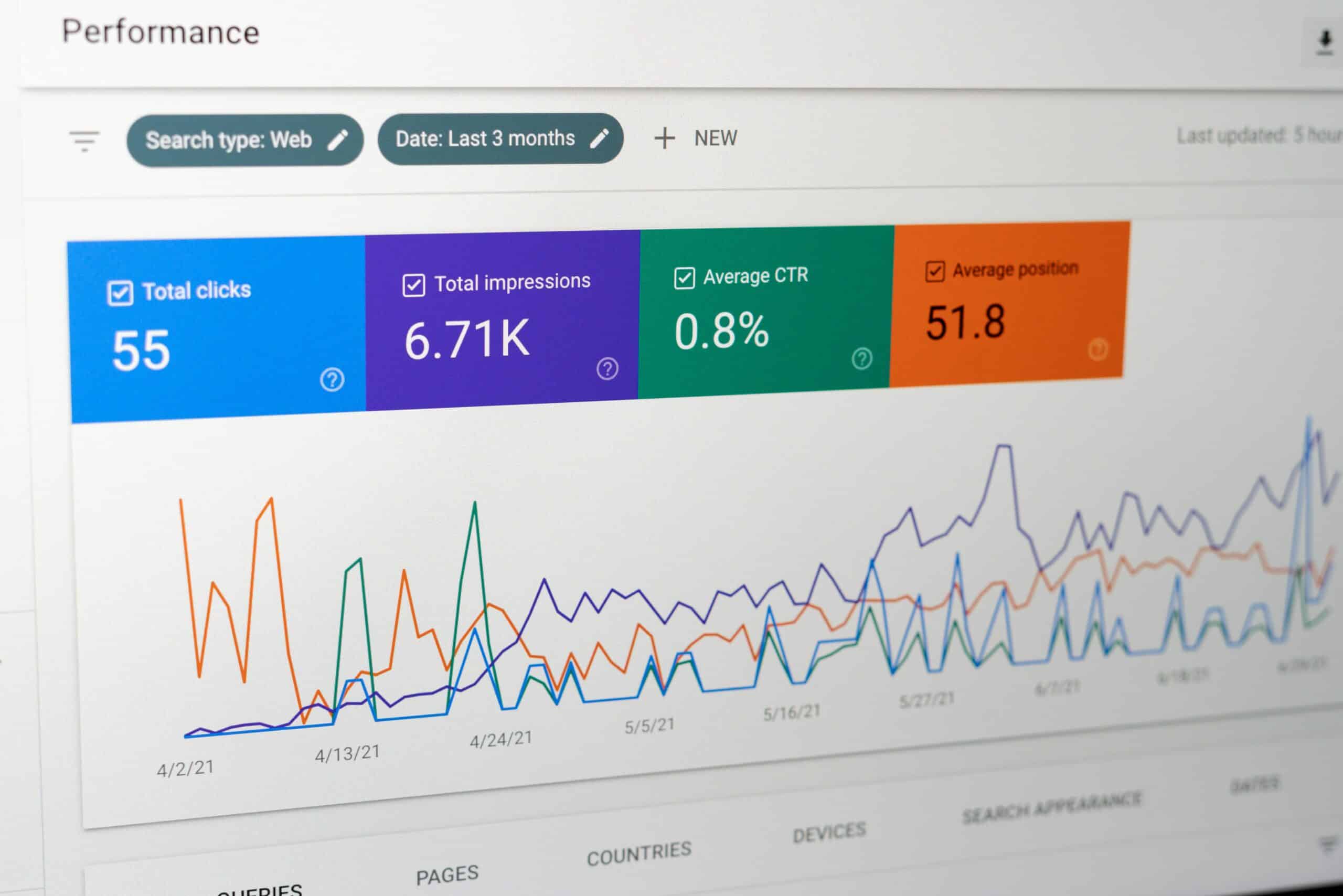SEO is an interesting game, we know how big brands (like Interflora) sometimes get it totally wrong and buy links resulting in google penalties – and you really shouldn’t play with fire unless you’re either:

a) an experienced professional SEO
or
b) comfortable with having your site removed from Google.
I’ve seen a case today where Santander (a well known Spanish bank, with offices globally) is basically giving advice that is so dangerous and outdated, that its not only poor, but borderline criminal in my view.
Let me make this clear:
if you follow SEO advice from Santander,
you are likely to be banned from google.
Lets take a look at some of their suggestions:
“The single biggest factor which determines your search ranking is links to your website from other sites. Search engines like Google regard every link to your website as a vote of confidence in your site. Links from websites which themselves have a high ranking are worth most.“
So far so good, Im in agreement. But lets look at some of their suggestions on how to acquire these links:
“Leave comments on forums and blogs. Many forums and blogs allow you to link back to your website if you leave a comment or take part in a discussion.“
Holy F***. So my bank is trying to tell me to comment spam? In fairness they go on to tell you to try and add something to the conversation to avoid looking like a spammer, which I guess is a good thing.
But it goes on:
“Offer to contribute to other sites in return for links. For instance, offer articles on relevant subjects to high-profile websites in your industry. Ensure the articles are credited to your website, with a link back to the site.“
Phew! For a second there I thought they were about to tell me to just pay for links, that was close..
“Run an affiliate scheme: An affiliate scheme encourages websites to link to you by offering commission on sales.”
Whoa there Santander, didn’t you know that using clean linking affiliate links is specifically called out by Google as manipulative, and will get you banned?
“Submit your site for inclusion in online directories. Many online directories act as jumping off points to other websites. They will be happy to link to you.”
Awesome! So Santander is now telling us to build links through directory spam!
Let me repeat what I said above, if you follow this advice from Santander about SEO, you are likely to cause serious damage to your website, and if your business depends on its website it could put you out of business.
On a final note, having spoken to STEAK and MTD Sales Training, they have informed me that they have never worked with Santander and would not contribute to articles that involve poor practises of SEO. The expert referenced within the article, Kulraj Singh Salh, left STEAK in 2009, and the document is not authorised by them at all.
*** UPDATE *** I’ve been advised that the Kulraj Singh Salh left Steak in 2009, and the document is not authorised by them at all. My point isnt really anything to do with them though, its that a high street bank should NOT be giving dangerous business advice.
*** UPDATE 2 *** after having discussed the matter with Steak, it seems absolutely clear that any of the advice on the Santander PDF did not originate from them, nor have they at any time had a relationship with the bank. Judging by the comments below it could well be that Santander have copied the document from another source and claimed it as their own. Banks being such ethical companies of course..!
*** UPDATE 3 *** I have now had confirmation from MTD Sales training that they likewise have never contributed any SEO advice to Santander bank, nor have they ever given Santander Bank any permission to use their name or reference them in any information provided to customers.
It has to be asked – what the heck are Santander playing at?
Both companies listed as having provided advice strongly contend that they had anything to do with its creation or publication, indeed, both companies vehemently deny any knowledge of it or its contents! Where have Santander bank got this information from? Why have they passed it off as their own?
If you would like to download their SEO advice, you can do so here.
So what’s your take on high street banks offering free SEO advice? Is the recognition a good thing for the industry or should it be left to the professionals?
.



